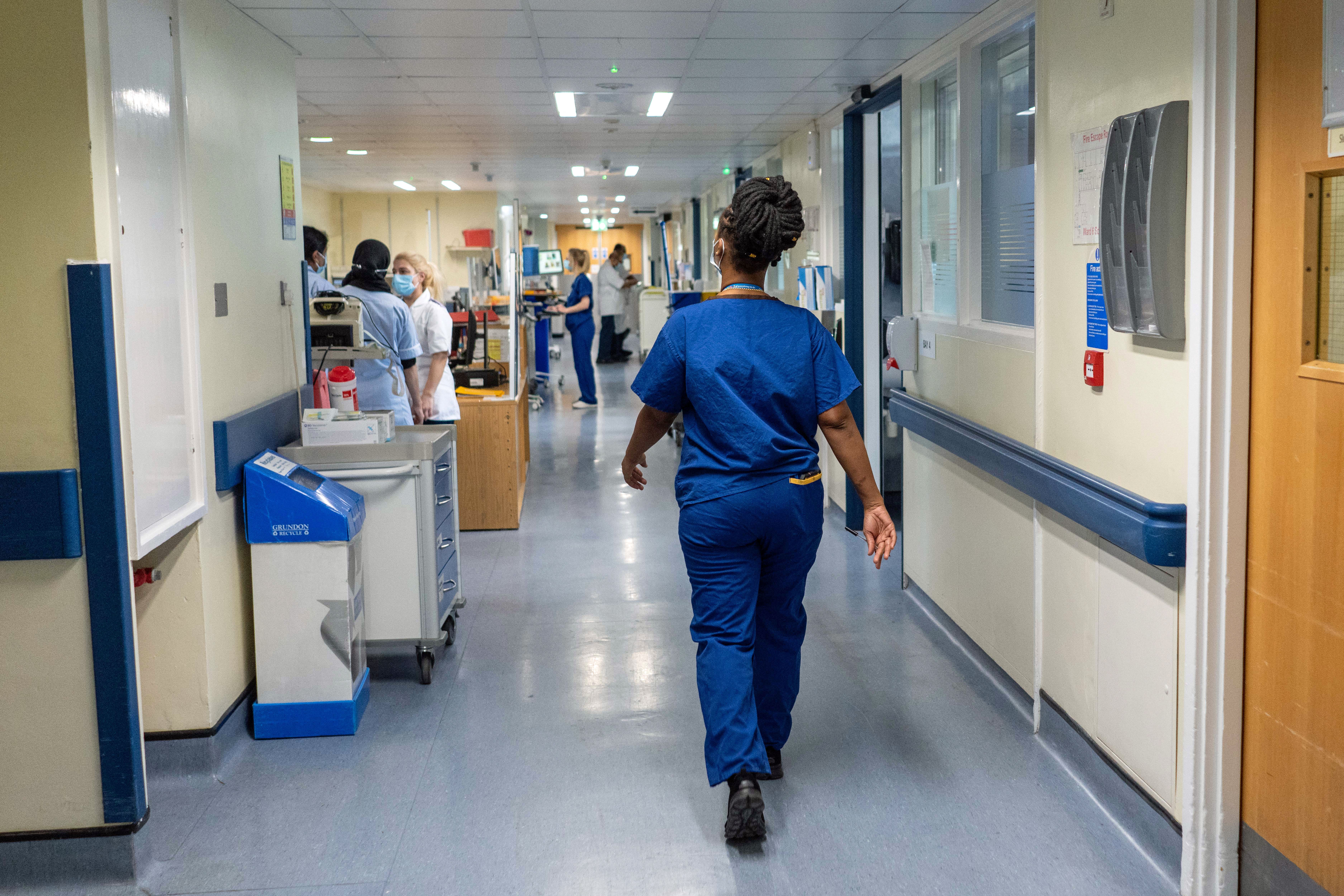Food banks in hospitals now the norm, say nurses
A union official said the NHS has reached a ‘boiling point’.

Your support helps us to tell the story
From reproductive rights to climate change to Big Tech, The Independent is on the ground when the story is developing. Whether it's investigating the financials of Elon Musk's pro-Trump PAC or producing our latest documentary, 'The A Word', which shines a light on the American women fighting for reproductive rights, we know how important it is to parse out the facts from the messaging.
At such a critical moment in US history, we need reporters on the ground. Your donation allows us to keep sending journalists to speak to both sides of the story.
The Independent is trusted by Americans across the entire political spectrum. And unlike many other quality news outlets, we choose not to lock Americans out of our reporting and analysis with paywalls. We believe quality journalism should be available to everyone, paid for by those who can afford it.
Your support makes all the difference.Food banks in hospitals have become the norm, with senior staff including ward sisters relying on them for supplies of essentials such as milk and bread, according to nurses.
The long-running dispute over pay and staffing in the NHS shows that the service has reached a “boiling point”, with experienced staff leaving for better-paid jobs in supermarkets, a union official warned.
If they are replaced at all, it is with young students, leaving wards staffed by inexperienced workers, nurses revealed during a discussion at Unison’s annual conference in Bournemouth.
Stuart Tuckwood, the union’s national nursing officer, said that, coupled with the loss of staff, nurses are dealing with more complex work.
“It seems as if the NHS has reached a boiling point. Throughout the recent strikes, unions have had huge public support – it’s only the Government that hasn’t realised how important health workers are.
One pay offer is not going to resolve more than a decade of declining standards
“There needs to be a complete reset because one pay offer is not going to resolve more than a decade of declining standards.”
Trudie Martin, an assistant practitioner from Devon, said hospitals across the country now have food banks for nursing staff, while NHS trusts in her region are trying to help nurses cope with the cost-of-living crisis by suspending car parking charges and even offering subsidies for driving lessons.
“There is definitely a struggle to recruit NHS staff because we are competing with supermarkets now,” she said.
“The level of help being offered in hospitals, such as food banks, has never happened before.”
Wilma Brown, a nurse from Scotland, said the pay rise of 5% for this year and a cash sum for last year, which Unison members have accepted, has lifted morale, but she believes it is only a “stop gap” to tackling the problems in the NHS.
“It’s just a sticking plaster, not a proper solution to encouraging more people into nursing.”
Steve Jones, a mental health nurse from Stoke-on-Trent, said he is not sure he would recommend a career in the NHS to anyone, adding that vacancy rates in some areas are up to 26%.
The nurses said food banks are now the norm in hospitals, with senior staff such as ward managers and senior sisters relying on them for basic supplies.